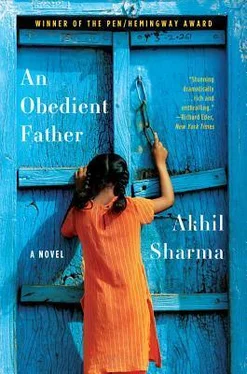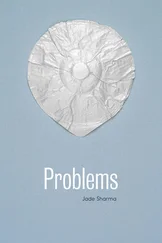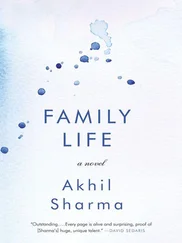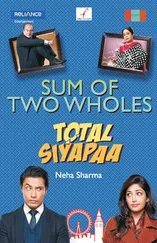Father Joseph shrugged and took a sip of tea. "That's not going to happen. There are too many non-Hindus in India." He paused, thought for a moment, and, as if ending the conversation, added, "What do I know about politics. I am just an ordinary headmaster."
We finished our tea in silence. I did not know what to do or say to show my strength.
"Shall I send for more tea?" Father Joseph asked. I thought his English sentence was hiding the Hindi slang for bribe. I became outraged. He smiled broadly and I knew that he had mocked my bumbling delicacy. I cleared my throat and casually spat a clot of phlegm on the bit of rug beside my foot.
Father Joseph looked at me in shock. I glanced at him and said in Hindi, "I know how much you charge students to get in here. I know the land we give you for one rupee a meter you then draw loans on for one hundred rupees a meter. You are a priest. What kind of religion do you follow?" I settled back on the sofa. Mr. Mishra had stopped smiling. "Why be greedy when there is so much."
"At last," Father Joseph said, now in English.
"At last what? Are you still a baby after all you've done?" I asked from where I was on the sofa. "We don't sell toys."
Father Joseph said nothing. He put his teacup on the table.
Father Joseph had not drunk his Campa. To highlight my greed I
asked, "Can I drink yours?" He nodded and I gulped it down. "At last, little baby," I said, and stood. "Take some time and think while we go look at your school."
Mrs. Singla led us around the school. I noticed as I walked through the halls that I was holding my shoulders back and letting my arms swing free. Mr. Mishra had never seen me behave this way, and I kept catching him looking at me. I began to feel contemptuous of him. I imagined myself as ruthless and powerful. I thought of finding Asha's classroom and in front of her letting Asha's teacher know our relationship. Mrs. Singla took us to a storeroom where cricket bats and field hockey sticks lay in mounds. I asked Mrs. Singla if there were any extra badminton rackets, because I wanted to give Asha a gift. I picked up a leather cricket ball there and kept flipping it from hand to hand for the rest of the afternoon.
Eventually Mr. Mishra and I were left to wander by ourselves. The school has a lift, and I like lifts very much. We rode it up and down several times. Mr. Mishra went into various classrooms and asked children random questions. "What is a binary star?" or "What does D.C. mean in Washington, D.C.?" When someone answered, he might say, "Is that what you think?" I found this hilarious.
Early in the afternoon Mr. Mishra was walking down a hall about thirty or forty meters ahead of me. I called out to him. When he turned around, I held up the cricket ball and mimed bowling it. He crouched and brought his hands together as though he were a wicket keeper. I don't know what made me stop miming, but I sent the ball shooting toward him. The ball hit the ground with a loud clap and Mr. Mishra was too surprised to catch it. Each time the ball hit the ground, there was the same loud clap. The classes all along the hall became quiet. The pride which had filled me evaporated. The surprise let me feel my ridiculousness.
We roamed the halls till a bell dismissed the classes. Because it was summer, the school day was shorter than normal. The children
lined up in the front field for their buses and we went to have lunch with Father Joseph.
Mrs. Singla joined us for the meal. I remained quiet. Girls from the home economics department had remained after class to serve us. There was chole bature, malai kofta, nan, rice, kheer, gajar-ka-halva. Once the food was in front of us, conversation ended. Father Joseph ate with knife and fork, but everyone else used bare hands. Mr. Mishra chewed so loudly it sounded as though he might be trying to say something. Mrs. Singla ate steadily, with her head bowed. Every now and then she looked up at the ceiling, shook her head, and moaned. I yearned to stuff myself, to eat until all my blood went to my stomach and getting up would make me dizzy, but my doctor had warned me against rich foods and I barely touched the various dishes.
When we were ready to leave, Mrs. Singla gave me two badminton rackets and a tube of shuttlecocks. She offered Mr. Mishra a similar set, but he said no. Mr. Mishra stood as he refused her. Then he and she moved out into the hall. I moved back to the sofa I had sat on earlier.
Father Joseph went to his desk and took out two small newspaper-wrapped bundles. "Forty thousand," he said, putting them at the edge of the desk. I had only expected him to pay twenty-five or thirty. Father Joseph, I thought, was one of those people for whom money is not real, and once he had surrendered in the bargaining, he gave up completely. I picked up the packages. I pretended to weigh the money. The heft of it and the feeling of victory removed the embarrassment I had been feeling. I asked for a plastic bag.
"Do I need to bring a gift to Mr. Gupta's party?" Father Joseph asked and laughed as I left.
On our way back, I fell asleep. I dreamed of Radha and Anita, and when I woke I was grinding my teeth, though I could not remember the details of my dream. The back of my shirt was sticking to the seat and I had a slight headache from the sun.
Mr. Mishra was looking out the window. He had finished the inspection report without my asking and it was on his lap. We were near-ing my home. We had passed the Old Clock Tower and were beside the Old Vegetable Market's layers of stalls. The jeep was moving in slow shudders. Pollution had created a blue haze on the road.
"You don't notice it till you're away, but Delhi is so polluted it's like living inside an oil tanker," Mr. Mishra said.
The dream and the money in my lap made me feel unworthy of his friendship. "Why do you think your son is so successful?" I asked him.
"I don't know," he said, continuing to look out the window "Children are born with personalities. He was born determined to be successful. And he's smart."
"I have a daughter who is a scientist in America. I have a son who has a Ph.D. in history. The fact that Anita never studied wasn't my fault." Saying this made me feel as though I was pleading. "My daughter Kusum has met the American President." Mentioning Kusum's achievements made me feel that perhaps she had accomplished them because she had stayed mostly outside my influence.
Mr. Mishra turned toward me. "Of course not," he said.
I think I was still dazed from my dream, for I kept going. "The things I do for Mr. Gupta… I do them only because I never had a wife who works, like yours." Mr. Mishra didn't respond. "Mr. Bajwa deserved to be caught. He had a wife who worked, but he was still Mr. Gupta's moneyman. As the Gita tells, possessions possess you. To achieve peace, let go of desire and seek only to fulfill your duties." When Mr. Mishra still did not say anything, I became angry at him. "You were lucky. Your first child was a boy and you could stop right there. I had two girls and only then a boy. How could I have supported five people on my salary?"
Mr. Mishra shrugged and kept quiet. We neared the temple where I was going to get the pundit for Radha's prayers. I told Narayan to stop in front. As I climbed out of the jeep with my badminton rackets and shuttlecocks, the plastic bag full of money dangling from a wrist, Mr. Mishra said, "Once we get this old, Mr.
Karan, there is no longer time to make up for our mistakes. We must try to forget them."
There are four or five steps up to the temple gates. To one side of the doors is a little space where a fat unshaven Brahmin with a little ponytail sits most days selling prayer pamphlets, flowers, and coconuts. When I entered the temple, he was asleep on his back, with a brick wrapped in sackcloth under his head as a pillow.
Читать дальше












